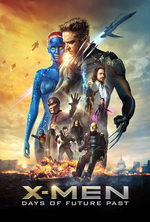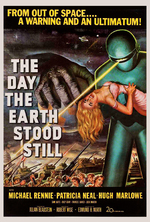Film Screening 19th July, 2014

X-Men: Days of Future Past
7:00 PM, 19th July, 2014
No Guests
- M
- 131 mins
- 2014
- Bryan Singer
- Simon Kinberg
- Hugh Jackman, Jennifer Lawrence, Michael Fassbender, Peter Dinklage
Everyone seems to be having Avengers envy these days. After Marvel’s superhero team-up mega-movie became the third highest-grossing film ever, rival comics giant DC put into production a Man of Steel sequel set to feature none other than Batman (Batfleck!) and Wonder Woman, while Marvel’s other licenced-off properties including Spider-Man have announced plans for expanded in-universe films too. And with six films already released and a character roster bursting to the seams, it seems almost a no-brainer that the X-Men series would be the next candidate for the kitchen-sink treatment.
Pulling double duty as both a sequel to 2003’s X-Men: The Last Stand and 2011’s X-Men: First Class, this film brings together the casts from the original film trilogy and their rebooted, younger counterparts for an epic, time-travelling film for the ages. It’s a post-apocalyptic future, and mutants are on the brink of extinction as a result of a worldwide extermination campaign courtesy of Trask Industries’ mutant-hunting Sentinel robots. Professor X (Patrick Stewart), Magneto (Ian McKellen) and the last surviving members of the X-Men make a last-ditch effort to save their kind by sending Wolverine’s (Jackman) consciousness back in time to his 1970s self in order to prevent a major historical event from occurring that puts mutants on the track to annihilation.
X-Men and X2 director Bryan Singer returns, after a decade-long directorial absence, to take carriage of this mammoth undertaking with an assured familiarity, returning the series to greatness after a few hokey entries. With an immensely popular storyline from the comics as its basis and a cast that’s a who’s who of the X-Men universe (and includes 6 Oscar nominees to boot), X-Men: Days of Future Past is exactly as expected: utter awesomeness.
Adrian Ma

The Day The Earth Stood Still
9:21 PM, 19th July, 2014
- G
- 92 mins
- 1951
Everyone agrees this is a landmark film, but it’s not easy to say in what way. I’d describe it as the first sober science fiction classic ever made – and it’s not as though they were particularly common thereafter, either. There’s no spectacle, no eccentric inventor, no whimsy and no scaly rubber-looking monsters from outer space, either.
In the ‘present day’ of 1951 an alien craft lands in Washington D.C. It contains a single extra-terrestrial passenger: Klaatu (Rennie), an emissary with an important message for the human race, which he will only deliver to all world leaders at once. The current world climate is both the reason for his message and the reason he’s unlikely to be able to deliver it – six years since World War II ended with atomic explosions, three years since the Berlin airlift, two years since Stalin got the atom bomb too.
The US army has guns trained on the craft from the moment it lands, and one particularly twitchy young soldier shoots Klaatu shortly after he emerges. It transpires that Klaatu’s errand is to determine – or to help his rather shadowy masters determine – if the human race should be allowed to survive; and we could hardly have made a worse initial impression.
I can assure you that, preachy as the film is on paper, it doesn’t emerge that way on screen; and naïve though the film may be on some points, it’s not easy to laugh at, either.
Henry Fitzgerald